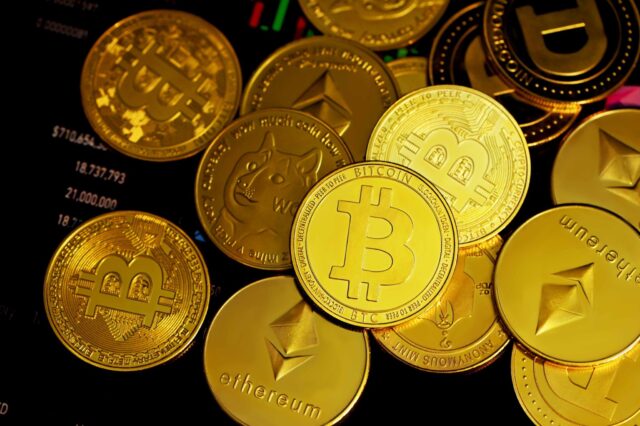
Ethereum (ETH) and Litecoin (LTC) are two of the most popular choices for those who trade cryptocurrency. Both are among the top ten cryptocurrencies in terms of market value and have a proven track record of success. There are, however, some significant variations between the two that investors should be aware of. In this essay, we will compare ETH and LTC and see which one is a better investment for you.
What is Ethereum (ETH)?
Ethereum is a decentralized platform that runs smart contracts, which are programs that execute precisely as planned with no downtime, censorship, fraud, or third-party intervention. Ethereum is the second-largest cryptocurrency in terms of market capitalization and has a proven track record of success.
Vitalik Buterin, a Russian-Canadian programmer and co-founder of Bitcoin Magazine, founded Ethereum in 2015. The purpose of Ethereum was to develop a blockchain-based platform capable of supporting a broad variety of applications other than digital money. To that purpose, Ethereum pioneered the notion of “smart contracts,” self-executing contracts in which the contents of the buyer-seller agreement are explicitly put into lines of code.
Ethereum’s own programming language, Solidity, is used to create smart contracts. These contracts are recorded on the Ethereum blockchain, a decentralized, unchangeable database that records all network transactions.
What is Litecoin (LTC)?
Litecoin is a peer-to-peer cryptocurrency founded in 2011 by Charlie Lee, a former Google employee. It is often called the “silver” to Bitcoin’s “gold” because it was meant to be a faster and less expensive alternative to Bitcoin.
Litecoin, like Bitcoin, is a decentralized, open-source, and secure digital currency that protects its transactions via encryption. There are, however, some significant distinctions between the two. For one thing, Litecoin has a new hashing algorithm known as Scrypt, which is intended to be more memory-intensive and hence more resistant to specialized hardware such as ASICs (application-specific integrated circuits). Because Litecoin can be mined with a conventional desktop computer, it is more accessible to average consumers.
Litecoin also has a quicker block time than Bitcoin, which means transactions are processed faster. Litecoin’s block time is 2.5 minutes, whereas Bitcoin’s is 10 minutes. As a result, Litecoin is better suited for short and frequent transactions.

Most Significant Differences Between ETH and LTC
Now that we have a fundamental grasp of ETH and LTC let’s look at some of their significant distinctions. One of the primary distinctions between ETH and LTC is their function. As previously said, Ethereum was created to be a platform for decentralized apps and smart contracts, while Litecoin was created to be a quicker and lighter version of Bitcoin. This implies that Ethereum has a larger emphasis on developers and corporations, while Litecoin is aimed at people and daily transactions.
Another significant distinction between ETH and LTC is their blockchains. Ethereum’s blockchain is more malleable and flexible, allowing smart contracts and decentralized applications to be constructed. Litecoin, however, has a simpler blockchain largely focused on transaction processing.
Mining: As previously stated, Litecoin has a new hashing algorithm known as Scrypt, which is meant to be more memory-intensive and resistant to specialized technology such as ASICs. Because Litecoin can be mined with a conventional desktop computer, it is more accessible to average consumers. Ethereum, on the other hand, employs the Ethash hashing method, which is likewise ASIC-resistant. However, Ethereum intends to transition to a proof-of-stake (PoS) consensus method in the near future, which would alter how the network is protected and confirmed.
Transaction speed: Because Litecoin has a quicker block time than Ethereum, transactions are executed faster. Litecoin’s block time is 2.5 minutes, whereas Ethereum’s is roughly 15 seconds. As a result, Litecoin is better suited for short, frequent transactions, while Ethereum is better suited for bigger, more sophisticated transactions.
Market capitalization: Ethereum has a market value of over $138 billion as of January 2021, whereas Litecoin has a market capitalization of roughly $8 billion. This implies Ethereum is far bigger and more established than Litecoin.
Adoption: Both Ethereum and Litecoin have widespread acceptance among businesses and exchanges. Ethereum, on the other hand, has a bigger and more active development community and a more comprehensive ecosystem of decentralized apps. This broadens its use cases and therefore increases its long-term growth potential.

Which is the better option: ETH or LTC?
So, which is a better investment: ETH or LTC? The answer is ultimately determined by your investment objectives and personal preferences. Here are a few things to think about:
Ethereum may be a better alternative if you want a cryptocurrency with a wide focus and long-term growth potential. Its platform caters to developers and enterprises and features a robust decentralized app ecosystem.
If you want a cryptocurrency that is more targeted toward daily transactions and has quicker transaction times, Litecoin could be a better option. Because of its quicker block time and usage of the Scrypt algorithm, it is better suited for short and frequent transactions.
Suppose you are more interested in the technical elements of cryptocurrencies. In that case, Ethereum may be worth considering since it has a more flexible and adaptable blockchain that enables the construction of smart contracts and decentralized apps.
To summarize, Ethereum and Litecoin are both excellent choices for cryptocurrency investors. They have a proven track record of success and are generally recognized by retailers and exchanges. The final selection will be based on your investment objectives and personal preferences. Before making any financial choices, you should always do your own research and due diligence.


































